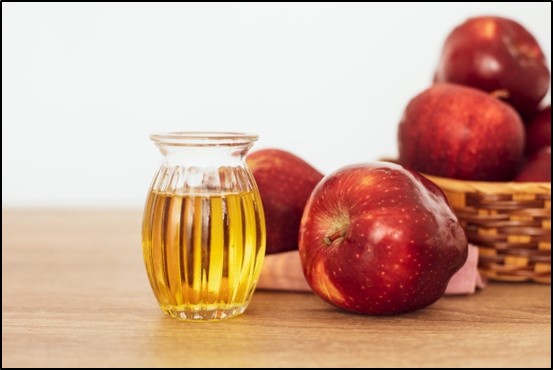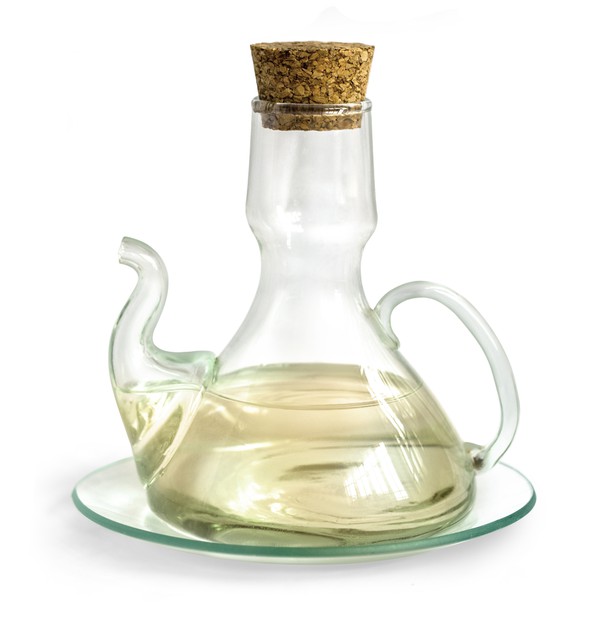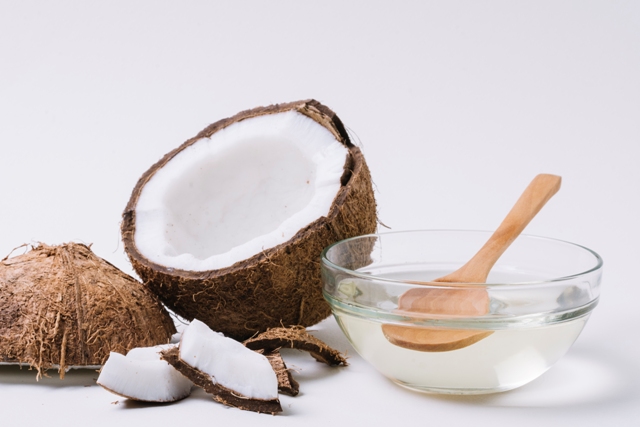Apple cider vinegar (ACV) is one of the most popular drinks used widely for its inimitable health benefits. ACV has been used by tradition for quite a lot of years meant for medical purpose. Various studies and researches have been carried out on ACV and they showed its significant role on combating several life threatening diseases. It also utilized traditionally for cooking purpose. As it contain vinegar within it, hence it is used as preservatives, it is also associated with baking, making of fruit chutneys, sauces and salad dressing.
What exactly the ACV is and how it is prepared?
ACV is actually common apple juice. Apple juice is fermented and processed to synthesize ACV. It is mainly prepared by using yeast and some bacteria. The preparation of ACV is something like this –
- Yeast is added with apple juice
- The sugar present in apple is mainly fructose, which undergoes fermentation (Fermentation is a chemical process, which breaks substances mainly carbohydrates by microorganisms and convert it into alcohol and/or acids) by yeast
- Alcohol has produced
- Bacteria turn the alcohol into an acid, called acetic acid, which is the key constituent of vinegar
Nutritional components present in ACV

ACV contain various nutritional component that include,
- Mother vinegar substance, it is an important substance, that is produced during the fermentation process and it is basically a cloud of microorganisms especially made up of bacteria and yeast so as to is seen in the ACV, it is the principle constituent of the fermented apple juice that makes it healthy. It acts as probiotic (Probiotics are substances
- that promotes the health of gastro intestinal track and digestive system) due to the presence of this mother substance. In general, it is found in raw ACV.
- Carbohydrates, generally fructose are present and it is utilized to produce alcohol followed by vinegar. Apart from this, it helps to provide energy. It is estimated that about 4 kcal of energy is obtained from 1 g of carbohydrate
- Fibres, it is complex carbohydrate. Generally pectin is present as the fibre in it. It is mainly responsible for bowl movement.
- Proteins, Various amino acids are present in it and it is related with providing proper nourishment and growth factors to the body.
- Fats, it contains simple fat, fatty acids and ester, which is coupled with providing energy and helps in the solubility of fat soluble vitamin that include, vitamin A, D, E and k
- Vitamins and minerals, it contains various vitamins, especially vitamin C and minerals include iron, copper, magnesium, potassium, manganese. All of these are trace elements and micro nutrients that help to protect the body and help to decrease the susceptibility of infectious disease
- Antioxidants, it is one of the most important nutritional component present in ACV, it help to scavenge free radicals and prevents the risk of cancer.
- Enzymes, especially amylase, lipase, polyphenol oxidase are the enzymes present in it

Role of ACV in preventing disease and its health benefit
ACV plays various significant roles in preventing a number of fatal and widely spread diseases. It is also seen that ACV has an important role in boosting up the nutritional status as well as health of living organism. The article will discuss seven most important heath benefit of ACV.
Prevention of diabetes mellitus
- ACV has a great role in reducing blood sugar level and it is associated with proper management of glycemic control
- The vinegar present in ACV is related with delaying stomach emptying, which leads to regulate the appetite. It helps to reduce hunger as there is a feeling of stomach fullness due to delayed stomach emptying that will reduce food intake. Finally it is resulting in reducing the glucose load.
- ACV contains fibres, which helps to prevent glucose absorption from intestinal epithelial cell reduces glucose uptake, hence resulting in decreasing the post-prandial peak of blood sugar level
- It helps to enhance the sensitivity of the hormone insulin, which takes up glucose from blood stream and transport it into liver where it is stored as glycogen. As a result glucose level is reduced in blood stream

Prevention of obesity
- ACV contain fibre that is related with delayed gastric emptying, resulting in reduction of hunger that leads to inhibit too much food intake. Reduction in food intake affect the energy balance, decreased calorie intake with normal calorie output causes negative energy balance, which is an important feature of weight loss
- ACV is coupled with reducing blood cholesterol level and triglyceride level that helps to lose body weight by inhibiting additional fat deposition within the body
- It helps to increase High Density Lipoprotein (HDL) and help to reduce Low density lipoprotein, thus it is associated maintaining proper lipid metabolism and weight management
Role in the regulation of lipidemia
- It helps to reduce the level of cholesterol and triglyceride in blood and serum. Hence, it is associated with reducing hyper lipidemia
- It helps to inhibit unnecessary fat deposition within the body.
- It enhances the catabolism of fatty acids and hence helps the process of fatty acid breakdown. This lipolysis is associated with decreasing the incidence of obesity, fat storage
- Reduction in cholesterol content in blood can inhibit gall stone formation

Prevention of Coronary artery disease
- As ACV has an important role in reducing blood cholesterol level, hence it has found to be an essential compound to prevent coronary artery disease.
- Reduced cholesterol level is related with reducing the incidence of fat deposition within coronary artery (Coronary artery is an artery that circulate blood within the heart) hence inhibit arthrosclerosis (It is a condition results from fat deposition in coronary artery, that decreases the lumen of artery and reduces blood flow)
- It helps to prevent mayocardial infraction
Role in boosting up the gastric health
- The fibre content of ACV is responsible for proper bowl movement, as it acts as laxatives.
- It helps to retain more water in stool and hence make the stool bulky and enhances peristalsis, which promotes bowl movement, thus inhibit constipation
- Proper peristalsis is responsible for improving the health of bowl, especially colon and hence, help to prevent formation of polyp, ulcerative colitis, irritable bowl syndrome
Prevention of PCOS
- Poly cystic ovarian syndrome (PCOS) is a hormonal disorder with abnormal menstrual cycle and elevated androgen level.
- Recent study has shown that consumption of ACV along with water immediate after dinner will help to improve the hormonal level with normal menstrual cycle

Prevention of carcinoma
- ACV has antioxidant property. It helps to reduce free radicals
- Reduction of free radicals is associated with inhibiting the oxidative damage of organs
- Decreasing free radical is associated with reducing the risk of cancer
These are the most important role played by ACV. Consumption of ACV with proper recommended allowance will enhance the general health status but too much consumption has some adverse effect like bone loss, low potassium level, damage of tooth enamel, frequent hypoglycemia. It is beneficial to consume 15 to 30 ml of ACV with water per day.

Source:
Fahey, R.L., 2017. Health Benefits of Apple Cider Vinegar and Other Common Vinegars: A Review. Integrative Medicine Alert, 20(6).
Halima, B.H., Sonia, G., Sarra, K., Houda, B.J., Fethi, B.S. and Abdallah, A., 2018. Apple cider vinegar attenuates oxidative stress and reduces the risk of obesity in high-fat-fed male Wistar rats. Journal of medicinal food, 21(1), pp.70-80.
Kausar, S., Abbas, M.A., Hajra Ahmad, N.Y., Ahmed, Z., Humayun, N., Ashfaq, H. and Humayun, A., 2019. Effect of apple cider vinegar in type 2 diabetic patients with poor glycemic control: A randomized placebo controlled design®. Health Sciences, 8(2), pp.149-159.
Kausar, S., Humayun, A., Ahmed, Z., Abbas, M.A. and Tahir, A., 2019. Effect of apple cider vinegar on glycemic control, hyperlipidemia and control on body weight in type 2 diabetes patients. Health Sciences, 8(5), pp.59-74.
Khezri, S.S., Saidpour, A., Hosseinzadeh, N. and Amiri, Z., 2018. Beneficial effects of Apple Cider Vinegar on weight management, Visceral Adiposity Index and lipid profile in overweight or obese subjects receiving restricted calorie diet: A randomized clinical trial. Journal of functional foods, 43, pp.95-102.
Morgan, J. and Mosawy, S., 2016. The potential of apple cider vinegar in the management of type 2 diabetes. International Journal of Diabetes Research, 5(6), pp.129-134.
Pusparatha, S.B., Devi, R.G. and Jyothipriya, A., 2019. Effects of apple cider vinegar on diabetic and obese patients. Drug Invention Today, 12(5).
Santos, H.O., de Moraes, W.M., da Silva, G.A., Prestes, J. and Schoenfeld, B.J., 2019. Vinegar (acetic acid) intake on glucose metabolism: A narrative review. Clinical nutrition ESPEN.
uhs.princeton.edu/health-resources/common-illnesses
www.cdc.gov/diseasesconditions/index.html








